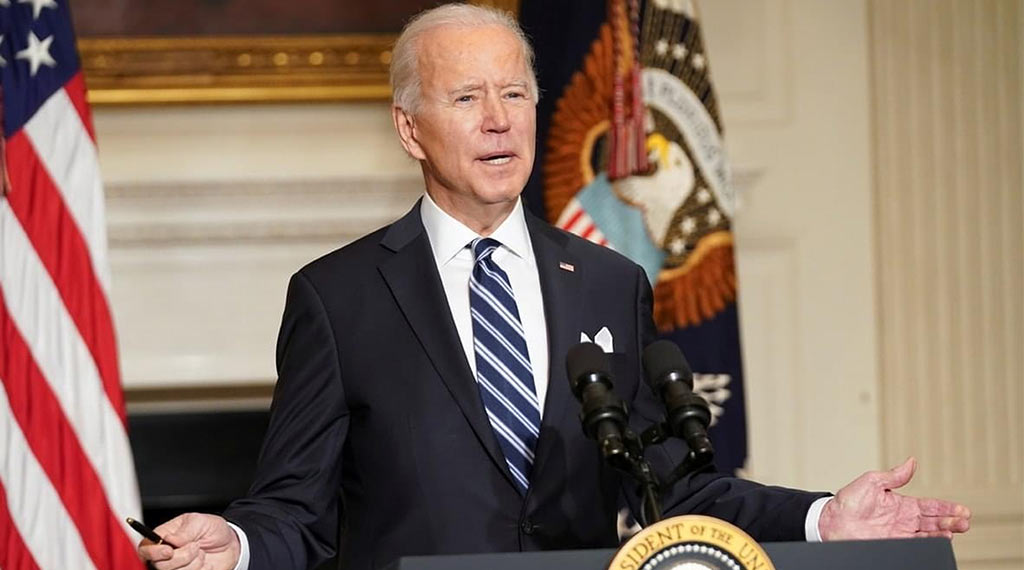New CSP/TIPP Poll: The perils of playing politics with Afghanistan

Editor’s note: The Center for Security Policy gratefully acknowledges its collaboration with tippinsights on the simultaneous and exclusive release of this important story.
The driving force behind President Joe Biden’s determination to draw the U.S. military presence in Afghanistan down to zero has been driven by nakedly political considerations. More than a decade of polling clearly indicates that a majority of Americans wanted the war in Afghanistan to end, which only intensified after the elimination of Usama bin Laden in 2011—suggesting that “ending the endless war” would be a political sure bet for whichever president could pull it off. President Biden routinely refers to this polling as justification for his precipitous drawdown and his default response to criticism of his Afghanistan policy is to say that he was doing what the American people demanded, regardless of how it was carried out. But in the wake of the resulting chaotic and violent surrender of Afghanistan to the Taliban, a new CSP/TIPP survey indicates this may not be an accurate reading of what Americans wanted in Afghanistan.
The CSP/TIPP polling was done at the beginning of this month, after the terrorist suicide attack on the Kabul airport that murdered 13 American service men and women, but before the revelation that the so-called retaliatory “righteous strike” was in fact an egregious mistake that murdered innocent civilians, including seven children. While the Biden administration has insisted that there is not a terrorist threat brewing in the Taliban-controlled Afghanistan, the first question in the survey, “Are you more concerned or less concerned about a terrorist attack launched on the U.S. from Afghanistan than you were on August 1, 2021,” suggests the American people do not share their confidence with 63% of respondents more concerned, including a plurality of Democrats (55%). Only 17% are less concerned.

The second question addresses one of the thorniest issues going forward, which is the fate of the 2001 Authorization for Use of Military Force (AUMF) which was passed by Congress shortly after 9/11. While primarily focused on Afghanistan, the AUMF has been the foundation for all military counter-terrorism activity outside Iraq (which has its own AUMF, passed in 2002). Among other shortcomings, the 2001 AUMF does not authorize military action against terrorism not overtly associated with the 9/11 attacks, notably the Islamic Republic of Iran, one of the leading state sponsors of terror whose military arm, the Islamic Revolutionary Guard Corps, has also been sanctioned as a terrorist group by the United States government. The theoretical conclusion of the U.S. mission in Afghanistan has thrown the status of the 2001 AUMF into doubt, and suggested further military action in Afghanistan might require additional authorization from Congress, which has generally been considered a political non-starter. The CSP/TIPP survey asked respondents to “what extent you support or oppose a targeted, ongoing U.S. counter-terrorism mission in Afghanistan?” Surprisingly, for a reportedly war-weary country, Americans responded in the affirmative with 60% supporting and 17% opposing—with an almost identical response from Republicans and Democrats, which should be food for thought for Members of Congress interested in this issue.

The final question in the survey is “Would you support or oppose the U.S. recognizing the Taliban as the legitimate government of Afghanistan?” The total response is 53% opposed to 25% supporting, but the cross tabs reveal a greater partisan divide than the other two questions, with 40% of Democrats supporting, while only 13% of Republicans and 17% of Independents support the move. This disparity may reveal opposing views on the deployment of American foreign aid, as recognition of the Taliban would facilitate the ongoing flow of assistance to Afghanistan—which while providing much needed humanitarian aid to the people of Afghanistan would also inevitably assist the Taliban as well.

The Biden administration’s political calculus now appears to be that they will simply turn the page from Afghanistan and pivot to domestic issues, and assume the American people want to forget the unpleasant events of 9/11 and the war on terror. The results of the TIPP survey, however, are roughly the opposite of the polling that informed President Biden’s determination to exit Afghanistan this summer, and these trends are worth watching going forward. Despite President Biden’s insistence that Afghanistan is in our collective rear-view mirror and America is moving on, he might want to remember that objects in the rear-view mirror are sometimes closer than they appear.
- When David Met Lisa - December 20, 2021
- Why the United States, not China, needs to shape Middle East policy - December 20, 2021
- Victoria Coates on the confusion in Natanz - December 10, 2021
